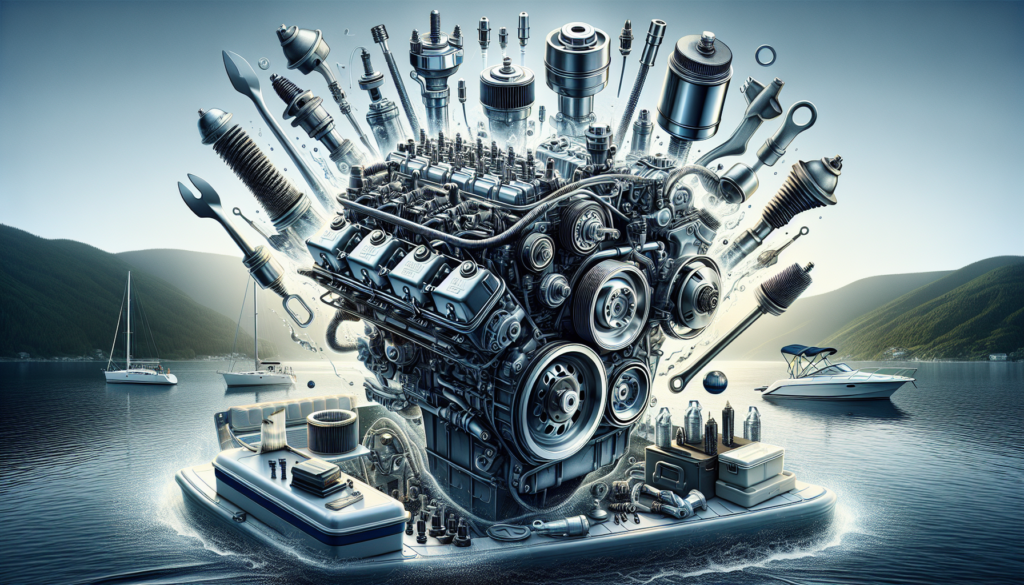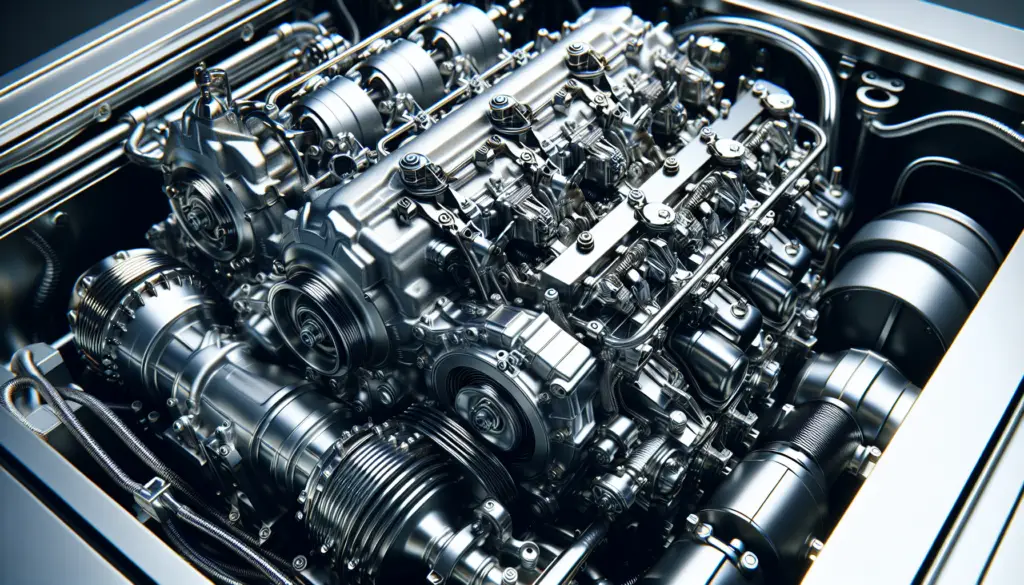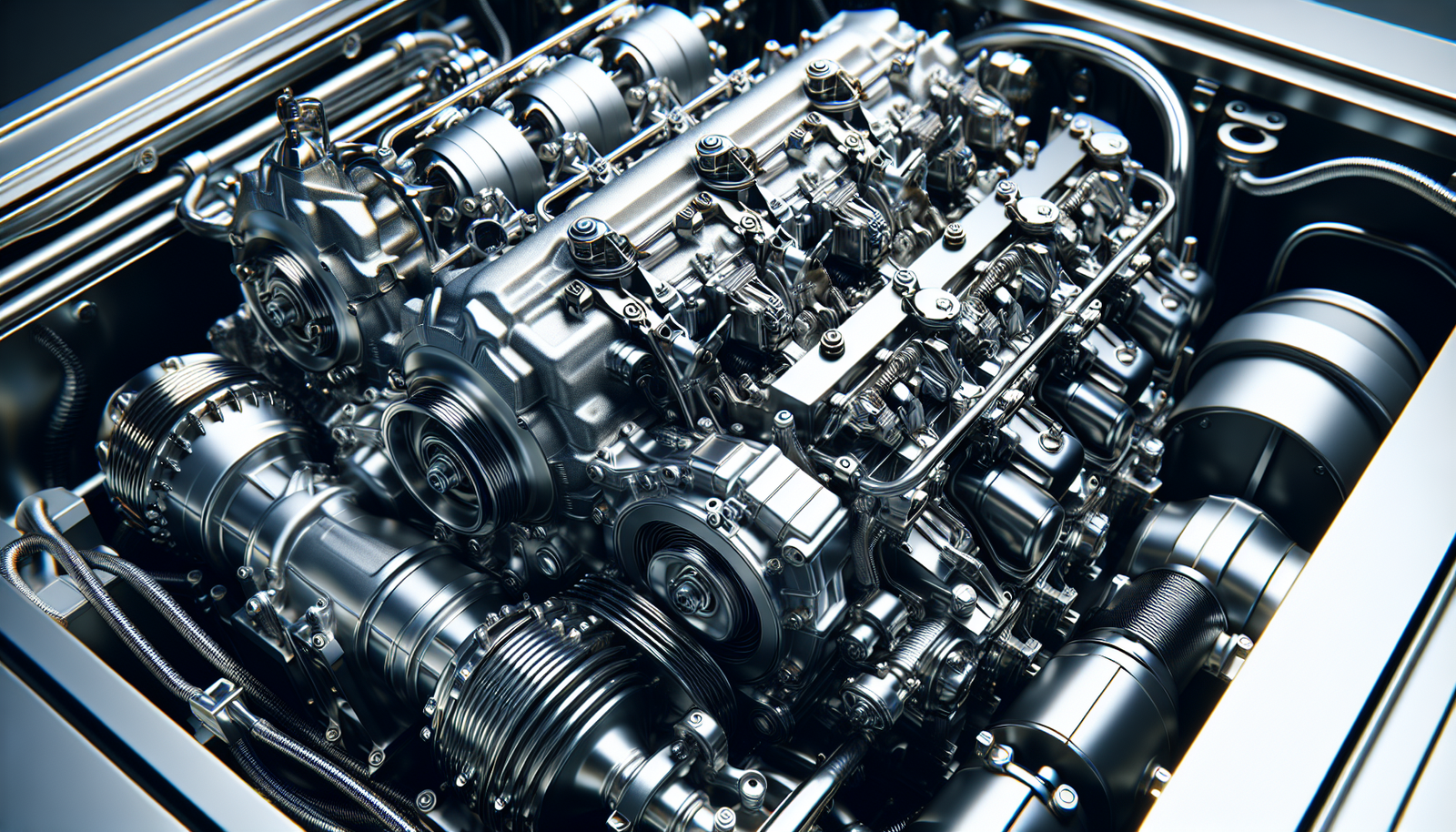Picture yourself sailing across serene waters, basking in the gentle glow of a setting sun, when suddenly your boat’s engine sputters and dies. Nightmarish, right? Avoid this unfortunate situation by equipping yourself with the essential knowledge on how to prevent boat engine breakdowns. This comprehensive article, “Top Boat Engine Breakdown Prevention Tips Every Boater Should Know,” is just the guide you need, filled with expert advice and practical steps to ensure your boat stays afloat and keeps the good times rolling.
Understanding Your Boat Engine
If you are a proud owner of a boat, it is essential for you to understand the heart and soul of your vessel – the boat engine. Just the way knowing about our health is vital, similarly, knowing your boat engine inside out can be extremely beneficial for maintaining its longevity and high performance.
The Basics of Boat Engines
Every boat engine, whether it’s an inboard engine, outboard engine, or a stern drive, has basic components that keep it running. The Engine block, which is the boat engine’s backbone, houses cylinders where fuel combustion takes place. The piston moves up and down the cylinder, converting fuel into mechanical energy. This mechanical energy is then used to power the boat.
The Role of Each Engine Component
Each engine component serves a purpose crucial for operation. The Carburetor mixes the air and fuel, creating a highly combustible mixture, which is then sparked by the spark plug to initiate the controlled explosion that powers the engine. The exhaust system then gets rid of the gases produced from the combustion.
Common Problems with Boat Engines
Just like any machine, boat engines aren’t impervious to issues. Common problems include overheating due to a compromised cooling system, fuel system contamination, causing inconsistent power supply, and engine corrosion. It is crucial to promptly address these issues to avoid severe damage.
Routine Maintenance
A well-functioning boat engine is largely dependent on regular and proactive maintenance.
Importance of Regular Engine Checks
Regular engine checks are vital to identify small issues before they become big, expensive problems. These checks would include looking at fluid levels, examining the belts and hoses, checking the fuel system, and inspecting the electrical systems.
Daily Engine Checks
Daily engine checks would involve examining the oil and coolant level, looking for any leaks, checking if the engine belts and hoses are in good condition, and making sure that there’s no fuel leakage.
The Dos and Don’ts of Engine Maintenance
For engine maintenance, do keep a schedule of regular checks and services. Don’t overlook small issues; they may lead to bigger problems if left unchecked. Do ensure proper fuel storage and consider using fuel additives to maintain engine performance. Don’t ignore the cooling system. Regular flushing can prevent heater cores or radiators from clogging up.

Fuel System Care
Taking care of your boat’s fuel system can increase the lifespan of your engine significantly.
Proper Storage of Boat Fuel
For storing boat fuel, always use cans or tanks that are specifically designed to store gasoline. They are usually red in color which is universally recognized to indicate gasoline.
Choosing the Right Fuel for Your Boat
Always use the fuel recommended by your boat’s manufacturer. Using the wrong type of fuel can cause damage to your engine. If you aren’t sure about the recommended fuel, refer to the boat’s user manual or ask the manufacturer.
Cleaning and Replacing Fuel Filters
Fuel filters should be replaced regularly. Periodic cleaning won’t just cut it. Replacing them ensures that dirt or contaminants in the fuel don’t enter and cause damage to your engine.
Engine Oil Maintenance
Engine oil maintenance is another critical aspect of boat engine care.
Importance of Regular Oil Changes
Oil changes are as important to your boat engine as to your car’s engine. Over time, the oil becomes dirty and less effective at lubricating and cooling the engine, which can cause damage.
Choosing the Right Oil for Your Boat
Use oil recommended by your boat’s manufacturer. The right engine oil can significantly extend the lifespan of your boat engine and improve its efficiency.
How to Change Your Boat Engine Oil
To change your boat engine oil, first, warm the engine, but be careful that it doesn’t get too hot. Then, using a marine pump, empty out the old oil. Once the old oil is removed, refill using the correct type and amount of new oil.

Cooling System Maintenance
The health of the boat’s cooling system directly affects the engine performance.
Understanding Your Boat’s Cooling System
A boat’s cooling system functions to maintain the engine temperature and avoids overheating. It circulates coolant throughout the engine, absorbs the heat, and disperses it.
Identifying Cooling System Issues
Common cooling system issues include a compromised water pump, blocked cooling passages, and a failing thermostat. If your boat engine is overheating, it may indicate a cooling system issue.
Proper Care and Maintenance Tips for Cooling Systems
Flushing the system regularly, checking for leaks, ensuring the pump is in good condition, maintaining proper coolant level and concentration are tips to keep the cooling system in top shape.
Electrical System Maintenance
The boat’s electrical system plays a vital role in overall performance as well.
Keeping Your Boat’s Electrical System Dry
Water and electricity don’t mix well. Keeping the electrical system dry is essential. If any component gets wet, dry it immediately to avoid electrical issues or corrosion.
Protecting Your Electrical System from Corrosion
Use marine-grade grease or spray on all electrical connections to prevent corrosion. Ensure wiring is covered and well protected from moisture.
Regular Inspection and Maintenance of Electrical Systems
Carry out regular inspection for any sign of corrosion, loose connections, or worn-out wires and replace them promptly.

Belt and Hoses Checks
The condition of belts and hoses significantly affect the engine’s performance.
Identifying Signs of Wear and Tear
Watch for cracks, bulges, or signs of weathering on belts and hoses. Also, pay attention to any strange sounds that could indicate a loose belt or a leaky hose.
Proper Replacement of Belts and Hoses
Belts and hoses should be replaced at the first sign of wear and tear. Regular checks are crucial to accurately predict when a replacement is necessary.
The Impact of Neglected Belts and Hoses on Engine Health
Neglected belts and hoses can lead to overheating, loss of power, or even engine failure. It’s important to check them regularly and replace if needed.
Proper Propulsion System Care
Maintaining your boat’s propulsion system is essential for smooth sailing.
What Is the Propulsion System?
The propulsion system is what moves your boat through the water. It includes the engine, transmission, propeller, and the steering system.
Common Propulsion System Issues
Common issues can range from overheating due to a blocked intake or exhaust, to poor performance from a damaged propeller.
Propulsion System Maintenance Tips
Ensure regular checks of all components, keep the system clean and free from debris, and ensure the system is lubricated well to prevent wear and tear.
Proper Winterization
Winterizing your boat engine is crucial in colder climates.
Understanding the Need for Winterization
Winterization protects your boat’s engine from the harsh effects of the cold weather and prevents damage.
How to Properly Winterize Your Boat Engine
To properly winterize your boat, drain the cooling system and refill it with anti-freeze. Change the oil and replace the oil filter, and remove the battery and store it in a warm, dry place.
Preventing Engine Damage During Cold Months
Regular checks during winter and appropriate protective measures can prevent engine damage during the cold months.
Emergency Prep for Engine Breakdowns
Being prepared for the unexpected is crucial when on the water.
Essential Tools and Spare Parts to Keep on Board
Keep a well-stocked toolbox on board, with essential spare parts like fuses, belts, spark plugs, impellers, and a well-charged spare battery.
What to Do in Case of Engine Failure on the Water
The first thing to do is ensure everyone on board is safe and the boat is well anchored. Then, try to identify and troubleshoot the problem if you can. If you can’t, call for assistance.
How to Identify Common Signs of Impending Engine Breakdown
Signs like strange engine sounds, smoke, sudden loss of power, or an overheat warning can indicate an impending engine failure. Know these signs and act promptly to prevent damage.
In conclusion, understanding your boat engine and knowing how to perform regular checks and maintenance can save you from expensive repairs and unexpected breakdowns in the middle of the water. Always be prepared for the unexpected—happy sailing!


